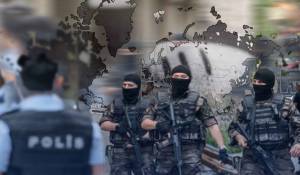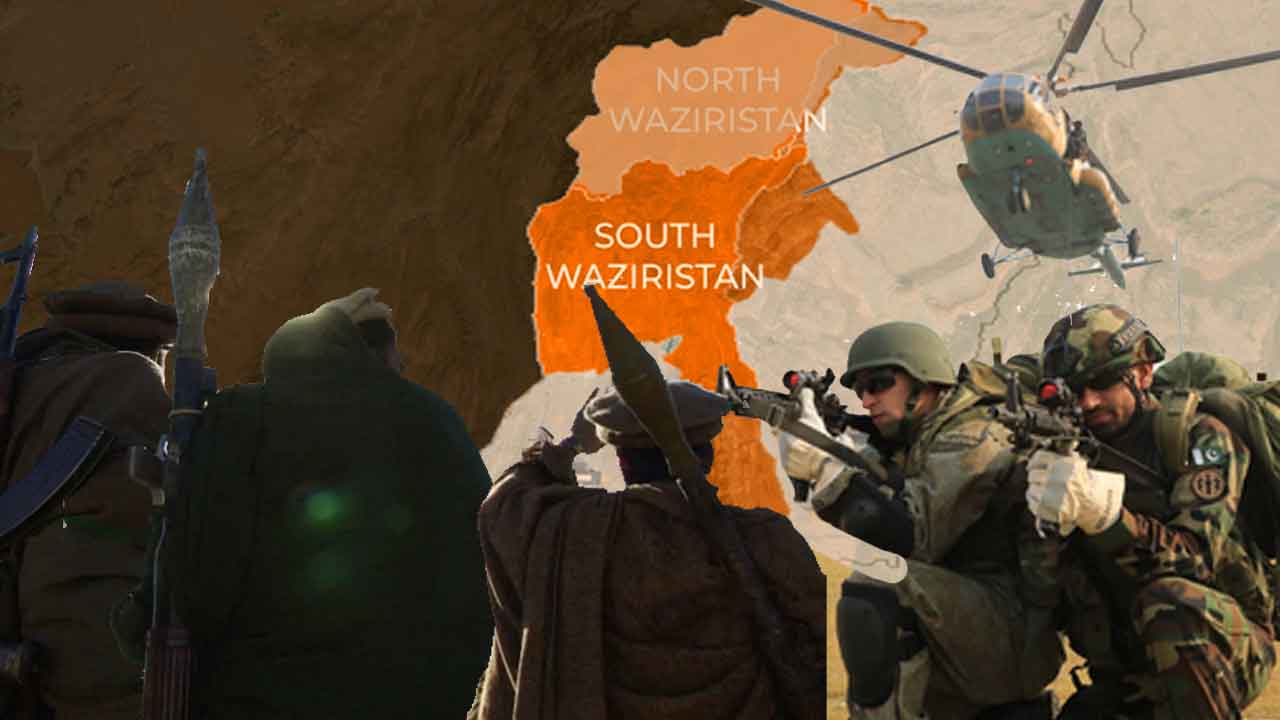
Ihsanullah Tipu Mehsud

March 05, 2026

In the last week of September 2003, a local asset, intelligence speak for an informant, with substantial access to local and global jihadist factions like Al-Qaeda, walked into a regional office of Pakistan's premier intelligence agency, the Inter-Services-Intelligence (ISI).
The information he carried would set the stage for one of the most significant counter-terrorism operations in Pakistan's history. Reflecting on Operation Baghar can illustrate where things went wrong for Islamabad after it became a frontline ally of the United States in its Global War on Terrorism after the 9/11 attacks in New York and Washington.
The informant revealed that a group of jihadists, including prominent leaders, had gathered in a cluster of mud houses in the village of Baghar near Angoor Adda, a western border crossing with Afghanistan in South Waziristan district in Khyber Pakhtunkhwa Province.
As he began to share his intelligence, the officers listened with skepticism. But the informant was local and reliable, with in-depth knowledge.
"Initially, I struggled to believe what he was telling me,” said the official who received the information. "The asset was credible, but I didn't expect him to have access to such high-level militant commanders."
To verify the claim, the officer showed the informant classified photos of the most wanted militant commanders, which were only available to Pakistani and American intelligence agencies at the time. The informant instantly identified the commanders among a list of photos he had claimed were present in the border area. "That further boosted my confidence," the official said.
The next day, the officer rushed to Rawalpindi, Pakistan's military headquarters, to discuss the issue at a high-level meeting. A top-ranking military official questioned the accuracy of the information and warned the officer of court-martial if it proved false.
"I was nervous because the hall was filled with all top-level military bosses," the official said.
To corroborate the claim, the officer sought confirmation from a second local asset, asking if the first informant had access to the compound suspected of harboring militants. The second source verified the information within a few days.
"I conveyed to my seniors that they could go ahead with executing the operation after ensuring that the information I passed on was clear and reliable," he recalled.
The compound, a large mud brick house, hosted high-profile commanders, including Hasan Masum (Makhdum), a top Uyghur jihadist and founder of the East Turkistan Islamic Party (ETIP), also known by his jihadist nom de guerre, Abu-Muhammad al-Turkestani. Another notable presence was Ahmed Said Al Khadr alias Abdul Rehman al Kanadi, a Canadian national and close aide to Al-Qaeda's top leadership, including Osama bin Laden. Al Kanadi's role involved relocating Al-Qaeda commanders' families to Waziristan following the US invasion of Afghanistan.
"They were among the first prominent jihadist leaders who were targeted while planning to establish a foothold in the region," the official claimed.
Following the collapse of the Taliban regime weeks after the US invasion of Afghanistan in October 2001, Waziristan became a key sanctuary for fleeing Taliban forces and nearly a dozen allied global jihadist groups.
Maulana Wali ur-Rehman Mehsud, the second-in-command and chief military strategist of Tehreek-e-Taliban Pakistan (TTP), described Waziristan's significance as a refuge and stronghold for jihadists in his mid-February 2012 interview with the author. Mehsud carried a $5 million US government bounty on his head before being killed in a 2013 US drone strike in North Waziristan tribal district.
"We turned Waziristan into the last fort of Jihad after the Emirate was toppled," Mehsud said. "God forbid, if Waziristan falls, Jihad will fall. It embraces, gives refuge and protects every Mujahid, regardless of nationality or even different school of thought."
The US closely monitored the escape of jihadists from Afghanistan to Waziristan and pressured General Pervez Musharraf's government to take action. This led to Pakistan launching a series of counter-terrorism operations and allowing limited US deployment in the region. As a result, American intelligence officials were stationed in two key military garrisons: one in Wana, South Waziristan and the other in Miranshah, North Waziristan.
The Baghar operation was approved, and Pakistan's elite Special Services Group (SSG) was tasked with conducting it. Multiple helicopters, including MI-17s and Cobra gunships, were deployed for the mission.
However, as the helicopters took flight, the weather suddenly deteriorated, forcing them to divert and land in the nearby Bannu district in then North West Frontier Province (NWFP), now Khyber Pakhtunkhwa.
"Due to bad weather, the operation was postponed for a day," the official said. The operation was formally launched the following day. Central Intelligence Agency (CIA) officials also participated in the operation. "We used to call them friends, using their code names," the official revealed.
The official sat anxiously in his Wana office, the district headquarters of South Waziristan, hoping his asset's information would prove accurate. The operation, which lasted nearly a day, felt like an eternity to him.
"Every minute felt like an hour as I worried about the outcome," he recalled. "This was Pakistan's first high-level counter-terrorism operation, based entirely on the information I provided."
The official received ground confirmation that all targets identified by his asset had been neutralized, with their bodies now in the custody of special forces.
"The operation resulted in the deaths of multiple individuals, including Kanadi and Masum. While some militants were taken into custody alive," the official revealed. "We also suffered casualties among our SSG personnel.”
Major General Shaukat Sultan, Pakistan's military spokesman, told international media that Hasan Masum was among eight people killed, while 18 others were arrested in the operation conducted on October 2. Two Pakistani troops were also killed and two wounded during the operation.
A jihadist source, claiming to have knowledge of Hasan Masum and Kanadi's final movements, revealed that Pakistani and American intelligence agencies were searching for Tahir Jan Yuldashev, the leader of the Islamic Movement of Uzbekistan (IMU) and Sheikh Murjan Salim aka Sheikh Isa, a fabled Egyptian jihadist ideologue, in the same cluster of mud houses where Masum and Kanadi were residing.
"They were looking for Tahir Jan and Sheikh Isa, with no idea that Abu Muhammad (Hasan Masum) and al-Kanadi were present there instead. Tahir Jan had been at the same compound just a few days earlier,” he claimed.
According to the official, Major-General Ameer Faisal Alvi, the then commander of Pakistan’s elite Special Services Group (SSG), led the operation in Baghar. In a tragic turn of events, General Alvi was assassinated on the outskirts of Islamabad in November 2008, more than two years after his retirement. Gunmen on a motorbike sprayed his car with bullets, killing him and his driver on the spot.
The circumstances surrounding General Alavi's killing were shrouded in mystery. However, according to a senior Pakistani Police official, who wished to remain anonymous, affiliates of Al-Qaeda were responsible for the attack.
“During interrogations, a former military official turned militant confessed to carrying out the attack personally, citing Kanadi as a primary motive. All other accounts are mere conspiracy theories,” The official, privy to the investigation into Alvi's assassination, claimed.
A jihadist source, speaking anonymously, corroborated the official’s account. He said General Alvi was assassinated as an act of revenge.
The Baghar operation highlights the jihadist threat's ability to unite even adversaries against a shared enemy. In this operation, Pakistan, with assistance from the CIA, successfully neutralized China’s most-wanted terrorist leader, achieving what Beijing couldn't accomplish on its own for years.
The successful conduct of the Baghar operation emboldened Pakistan to pursue militant leaders from various nationalities across the country in subsequent years. Although Pakistan claims to have played a crucial role in eliminating militants posing global terror threats, it is once again experiencing a rapid resurgence of terrorism.
"We safeguarded the world at our own cost, and now everyone is almost at peace except us,” lamented the official, a veteran of Pakistan's counter-terrorism espionage efforts during the peak years of the war on terror.
“Our hard-won gains from years of extensive counter-terrorism operations, which came at a significant cost in lives and resources, are once again being eroded by a new wave of violence from both jihadist and nationalist militant outfits."